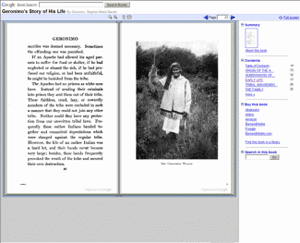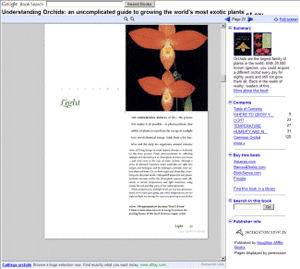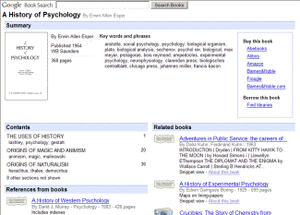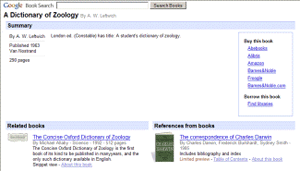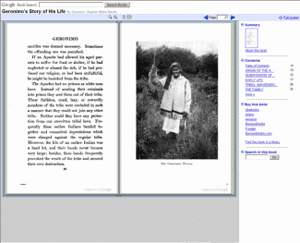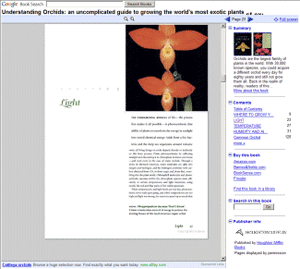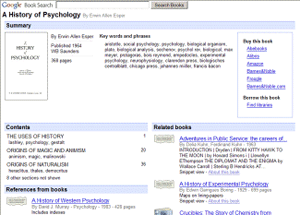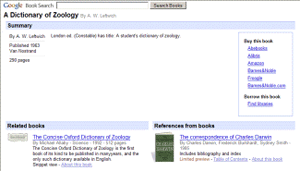4.12 Ownership of University Digital Copy. As among the Parties, and subject to the restrictions in this Section 4 and the rights of the copyright holders and their licensees, each Source CIC University shall own all rights, title, and interests in and to the University Digital Copy of the Selected Content provided by such Source CIC University. Without limiting the foregoing, neither the CIC nor any CIC University shall display or otherwise use the University Digital Copy except as expressly permitted in this Agreement, or in subsequent written agreements with Google.
4.13 Contribution of University Digital Copy to a Central Depository. Subject to the terms of this Section 4, each CIC University shall have the right to contribute all or portions of its Public Domain Works contained in the University Digital Copy to a joint depository or depositories of digital works hosted by one or more of the CIC University libraries (such libraries are referred to herein as the “Hosting Libraries”). Prior to the provision of Public Domain Works to any such Hosting Library, the CIC Universities participating in the joint depository and the Hosting Libraries shall have entered into a written agreement and shall have provided a copy of that agreement to Google, which agreement shall (a) contain limitations on the Hosting Libraries’ use and distribution of the University Digital Copy that are at least as restrictive as the limitations placed on the CIC Universities’ use and distribution of the University Digital Copy under this Agreement (including the restrictions set forth in Section 4.14 herein); (b) expressly name Google as a third party beneficiary of that agreement for the purpose of enforcing such restrictions; (c) provide a written commitment to indemnify or otherwise assume full liability for any claims arising from the Hosting Libraries’ use and distribution of the University Digital Copy along with assurance acceptable to Google that any claim resulting from such use and distribution under such assumption of liability will be satisfied; and (d) require the Hosting Libraries to identify the works in the University Digital Copy, in a statement on the applicable web page or other access point, as “Digitized by Google” or in a substantially similar manner.
4.14 Use of University Digital Copy on the CIC University Website.
(a) Each Source CIC University shall have the right to use the University Digital Copy of the Selected Content provided by such Source CIC University, in whole or in part, at the CIC University’s sole discretion, subject to applicable Copyright Laws, as part of services offered on the CIC University’s website to advance its academic purposes to support the instruction, research and scholarship of its campus community.
(b) The CIC Universities may not charge or receive payment or other consideration for the use of the University Digital Copy without the express written consent of Google except that the CIC Universities may recover from its end users costs for print and copying services.
(c) The CIC and each CIC University agrees that to the extent it makes any portion of the University Digital Copy publicly available, it will identify the works, in a statement on a web page or other access point to be mutually agreed to by the Parties, as “Digitized by Google” or in a substantially similar manner.
(d) The CIC Universities shall implement technological measures (e.g., through use of the robots.txt protocol) to restrict automated access to any portion of the University Digital Copy or the portions of the CIC University website on which any portion of the University Digital Copy is available. The CIC Universities shall also take reasonable steps to prevent third parties from (i) downloading or otherwise obtaining any portion of its University Digital Copy for commercial purposes, (ii) redistributing any portions of the University Digital Copy, or (iii) automated and systematic downloading from its website image files from the University Digital Copy. Each CIC University shall develop methods and systems for ensuring that substantial portions of the University Digital Copy are not downloaded from the services offered on the CIC University’s website or otherwise disseminated to the public at large. Each CIC University shall also implement security and handling procedures for the University Digital Copy which procedures shall be mutually agreed upon by the Parties. Except as expressly allowed herein, the CIC Administrative Offices and CIC Universities will not share, provide, license, or sell any portion of the University Digital Copy to any third party without the express written consent of Google.
4.15 Survival. The Parties’ obligations under this Section 4 shall survive the expiration or termination of this Agreement; except that (a) Section 4.1(c) will terminate at the expiration or termination of this Agreement, (b) Section 4.6 will survive for as long as Google continues to hold the Escrow Deposit, and (c) Google’s obligations related to the escrow will survive until the Escrow Deposit is released pursuant to a Release Condition or otherwise as set forth in Section 4.11.
5. ACCESS, AUTHORIZATION AND SUPPORT
5.1 Access. Google shall have the right to access Selected Content during the Source CIC University’s business/staff hours as required to exercise its rights and perform its obligations hereunder. If requested by Google, the Source CIC University shall make commercially reasonable efforts to provide Google with access to Selected Content outside of the Source CIC University’s business hours provided that Google notifies the Source CIC University at least two (2) days in advance of its intent to access such materials.
5.2 Authorization. The CIC will designate a single CIC University program manager who will be subject to Google’s reasonable approval. The CIC University program manager, working in conjunction with the CIC Administrative Offices, is responsible for the Selected Content involved in any Project Plan and shall have authority to agree with Google and CIC Project Management Staff on the time frames and procedures (e.g., collection, conservation, and handling) associated with that Selected Content. If Google in good faith believes that the time frames and procedures requested by the CIC University program manager and/or the CIC are unreasonable, Google shall escalate the matter to CIC University Project Lead (as described below); in which case Google and the CIC University Project Lead shall confer to resolve the issue. The CIC University Project Lead will also be designated by the CIC and will be subject to Google’s reasonable approval. The CIC University Project Lead will be a single individual who will serve as the single point of contact for all communications relating to the Project. The CIC Project Lead will be responsible for distributing information to the appropriate individuals or groups at the CIC Universities and for communicating information back to Google. The CIC University Project Lead will also be responsible for identifying an appropriate alternative point of contact for instances when he or she is not available or is not the appropriate contact and the alternative contact will be responsible for distributing the information to the CIC Universities.
5.3 Support. The CIC Administrative Offices shall also appoint one person to serve as the administrative contact for Google, should administrative questions or issues arise during the Term of this Agreement. This administrative contact shall be available during regular business hours (9:00 a.m. to 5:00 p.m., Monday through Friday) for the CIC Administrative Offices at a telephone number and e-mail address to be provided by the CIC Administrative Offices. Each CIC University shall also appoint one person to serve as the technical contact for Google for obtaining and regulating the use of the University Digital Copy. This technical contact shall be available during regular business hours for that CIC University at a telephone number and e-mail address to be provided by the CIC University. Upon execution of this Agreement, Google and each CIC University shall identify these individuals in writing, which may be email.
6. CONFIDENTIALITY
6.1 Confidentiality. Disclosure of confidential and/or proprietary information disclosed hereunder, including the existence and content of the Agreement and any information provided pursuant to the Agreement, shall be governed by the confidentiality provisions of mutual nondisclosure agreements, which have been executed by the Parties prior to the execution of this Agreement (the “NDA”). The confidentiality provisions of the NDA are hereby incorporated by reference into this Agreement. In accordance with the terms of the NDA, by execution of this Agreement, each Party provides to the other Parties advance written approval for release of the executed Agreement as a public document in a timeframe and manner to be mutually agreed to by the Parties.
6.2 PR. No Party will issue any public announcement regarding the existence or content of this Agreement without the other Party’s prior written approval. Notwithstanding the foregoing, subject to the terms of Section 7 below, Google may include CIC Brand Features and/or a CIC University’s Brand Features in presentations, marketing materials, and customer lists during the Term so long as Google first furnishes the CIC and/or the CIC University with specific examples of such presentations, marketing materials, and customer lists and obtains the CIC or the CIC University’s written approval, which approval may be withheld at the CIC’s or such CIC University’s sole discretion, and provided Google uses the Brand Features only in a manner that is substantially similar to the reviewed and approved uses. Upon request by the CIC Administrative Offices or a CIC University, Google will furnish a sample of such usage. Google shall not use the CIC or CIC Universities’ Brand Features in a manner that misrepresents the relationship among the Parties or implies that the CIC or any CIC University endorses Google’s products or services.
7. BRAND FEATURES
7.1 Ownership. Each Party shall own all right, title and interest relating to its Brand Features. Some, but not all examples of Google Brand Features are located at:
http://www.google.com/permissions/trademarks.html (or such other URLs Google may provide from time to time). Except to the limited extent expressly provided in this Agreement, neither Party grants, and the other Party shall not acquire, any right, title or interest (including, without limitation, any implied license) in or to any Brand Features of the first Party; and all rights not expressly granted herein are deemed withheld. All use by Google of CIC or CIC University Brand Features (including any goodwill associated therewith) shall inure to the benefit of the CIC University and all use by a CIC University or CIC of Google Brand Features (including any goodwill associated therewith) shall inure to the benefit of Google. No Party shall challenge or assist others to challenge the Brand Features of the other Party (except to protect such Party’s rights with respect to its own Brand Features) or the registration thereof by the other Party, nor shall either Party attempt to register any Brand Features or domain names that are confusingly similar to those of the other Party. Each Party shall display symbols and notices clearly and sufficiently indicating the trademark status and ownership of the other Parties’ Brand Features. No party shall modify or alter another Party’s Brand Features or use a Brand Feature of another Party in combination with other trademarks or create a unitary composite trademark involving another Party’s Brand Features without the prior written consent of the other Party, which consent may be withheld in such other Party’s sole and absolute discretion.
7.2 License to CIC University Brand Features. Subject to the terms and conditions of this Agreement, Google, each CIC University, and CIC grants to the other Parties a limited, nonexclusive, personal and nonsublicensable, royalty-free license during the Term to display those of its Brand Features expressly authorized for use in this Agreement, solely for the purposes expressly set forth herein. Notwithstanding anything to the contrary, any Party may revoke the license granted herein to use that party’s Brand Features upon providing the other Parties with written notice thereof and a reasonable period of time to cease such usage.
8. TERM AND TERMINATION
8.1 Term. This Agreement is effective as of the Effective Date and continues in full force and effect for a period of six (6) years, unless earlier terminated as provided herein (the “Initial Term”). Upon the expiration of the Initial Term, this Agreement shall automatically renew for additional one year terms (each a “Renewal Term”) unless either Party notifies the other Party to the contrary at least thirty (30) days before the end of either the Initial Term or a Renewal Term. The “Term” of this Agreement shall comprise the Initial Term and any Renewal Terms.
8.2 Termination. Any Party may suspend performance and/or terminate this Agreement: (i) if another Party materially breaches any material term or condition of this Agreement and fails to cure such breach within thirty (30) days after receiving written notice thereof; or (ii) if another Party becomes insolvent or makes any assignment for the benefit of creditors or similar transfer evidencing insolvency, or suffers or permits the commencement of any form of insolvency or receivership proceeding, or has any petition under bankruptcy law filed against it, which petition is not dismissed within sixty (60) days of such filing, or has a trustee, administrator or receiver appointed for its business or assets or any part thereof; or .
8.3 Effect of Expiration or Termination. Within thirty (30) days after expiration or termination of this Agreement for any reason, each Party shall return to the other Party (or, at that Party’s request, destroy) any Confidential Information of that Party that is in its possession. The following sections survive expiration or termination of this Agreement: 1, 4.15, 6, 7.1, 8, 9, 10, 11 and 12.
9. WARRANTIES AND DISCLAIMER
9.1 Mutual Warranties. Google, CIC, and each CIC University represent and warrant that (i) it has full power and authority to enter into this Agreement and to perform its obligations hereunder; and (ii) this Agreement constitutes its valid and binding obligation, enforceable against it in accordance with its terms.
9.2 Disclaimer. THE WARRANTIES EXPLICITLY SET FORTH ABOVE ARE THE ONLY WARRANTIES PROVIDED HEREIN AND ARE IN LIEU OF ALL OTHER WARRANTIES BY THE PARTIES, EXPRESS OR IMPLIED, INCLUDING ANY IMPLIED WARRANTY OF MERCHANTABILITY, TITLE, OR FITNESS FOR A PARTICULAR PURPOSE, WITH RESPECT TO THE SUBJECT MATTER OF THIS AGREEMENT. WITHOUT LIMITING THE GENERALITY OF THE FOREGOING, EACH PARTY SPECIFICALLY DISCLAIMS ANY WARRANTY REGARDING NON-INFRINGEMENT OF THIRD PARTY INTELLECTUAL PROPERTY.
10. INDEMNIFICATION.
10.1 Definition of Use. As used in this Section 10, the word “use” means copying, distributing, publicly displaying, publicly performing, creating derivative works, and all other use.
10.2 By Google. Google shall, at Google’s sole cost and expense, defend the CIC and the CIC Universities and their respective governing boards, officers, employees, and agents (collectively, the “CIC Indemnitee(s)”) against any demand, claim, action, suit, or other proceeding arising out of or in connection with any claim asserted by any third party against a CIC Indemnitee alleging that any or all of the following constitute the infringement of the intellectual property rights of any third party: (a) the CIC or the CIC Universities’ making the Available Content and the Selected Content available to Google for Digitization (only to the extent that such provision of Available Content is alleged to be direct or secondary copyright infringement); (b) Google’s Digitization of Selected Content, (c) Google’s use of the Google Digital Copy, including such use by a third party; provided, however, that the foregoing indemnification excludes any third-party claim to the extent it is based on or otherwise arises out of use of any portion of the University Digital Copy by the CIC Universities, by any Hosting Library or any other third party after such portion has been downloaded from escrow by or at the direction of the CIC Source University. Google shall select counsel reasonably appropriate for such defense and shall pay such counsel’s fees and disbursements and all costs and expenses of suit. Universities or CIC may participate in the defense with counsel of their own choice, at their own cost and expense.
10.3 By Each CIC University. Consistent with and subject to the requirements and limitations of the laws of the state under which it is organized, each CIC University (the “CIC Indemnitor”) shall defend Google and its directors, officers, employees, and agents (collectively, the “Google Indemnitee(s)”) against any demand, claim, action, suit, or other proceeding to the extent arising out of or in connection with any claim asserted by any third party against a Google Indemnitee alleging that any or all of the following constitutes the infringement of the intellectual property rights of any third party: (a) such CIC Indemnitor’s use of any portion of the University Digital Copy after such portion has been downloaded from the escrow described in Section 4.7, and/or (b) use by any third party (including any Hosting Library) of the University Digital Copy of the Selected Content provided by such CIC University after such portion of the University Digital Copy has been downloaded from the escrow described in Section 4.7. To be clear, the foregoing indemnification excludes any third party claim that relates to the escrow described in Section 4.7 above or the Hosting Solution described in Section 4.6. If a third party claim covered by the indemnification set forth in this 10.3 is asserted, each CIC Imdemnitor agrees to use best efforts to seek appropriate approvals or exemptions under applicable state law to provide the indemnification to the Google Indemnitee(s). Each CIC Indemnitor further agrees that, to the extent it is entitled to assert claims of immunity under applicable federal or state law in connection with its use of the University Digital Copy, such claims will not be asserted to vitiate its indemnity obligations with regard to Google’s liabilities to third parties arising from such use. The CIC Indemnitor shall select counsel reasonably appropriate for such defense and shall pay such counsel’s fees and disbursements and all costs and expenses of suit. Google may participate in the defense with counsel of its own choice, at its own cost and expense.
10.4 General. Notwithstanding anything to the contrary set forth in this Agreement, the indemnifying party’s obligations under Sections 10.1 and 10.2 shall be limited to (a) payment by the indemnifying party (“Indemnitor”) of all damages, judgments, awards, fines, penalties, costs and expenses (including attorneys’ fees and costs of suit) finally awarded for such claim, or (b) amounts paid in settlement of such claim, provided such amounts were approved in advance in writing by the Indemnitor, which approval shall not be unreasonably withheld. The foregoing obligations shall exist only if the party seeking indemnification: (i) promptly notifies the Indemnitor of such claim, (ii) provides the Indemnitor with reasonable information, assistance and cooperation in defending the lawsuit or proceeding, at the Indemnitor’s expense, and (iii) gives the Indemnitor full control and sole authority over the defense and settlement of such claim. The Indemnitee may join in defense with counsel of its choice at its own cost and expense. The Indemnitor shall only reimburse the Indemnitee for expenses incurred by the Indemnitee with the Indemnitor’s prior written approval.
11. LIMITATION OF LIABILITY
IN NO EVENT WILL ANY PARTY OR ITS REGENTS, TRUSTEES, DIRECTORS, OFFICERS, EMPLOYEES OR AGENTS BE LIABLE TO ANY OTHER PARTY NOR TO ANY THIRD PARTY CLAIMING THROUGH SUCH OTHER PARTY FOR ANY FORM OF INDIRECT, SPECIAL, INCIDENTAL, EXEMPLARY, OR CONSEQUENTIAL DAMAGES, INCLUDING LOST REVENUES AND LOST PROFITS, ARISING OUT OF OR IN CONNECTION WITH THE PERFORMANCE OR SUBJECT MATTER OF THIS AGREEMENT.
IN NO EVENT SHALL ANY PARTY’S COMBINED AGGREGATE LIABILITY HEREUNDER FOR ANY CAUSE WHATSOEVER ARISING OUT OF OR IN CONNECTION WITH THE PERFORMANCE OR SUBJECT MATTER OF THIS AGREEMENT EXCEED ONE MILLION DOLLARS ($1,000,000.00).
THE FOREGOING LIMITATIONS OF LIABILITY SHALL APPLY TO THE FULLEST EXTENT PERMITTED BY APPLICABLE LAW, WHETHER THE ALLEGED LIABILITY IS BASED ON CONTRACT, TORT (INCLUDING NEGLIGENCE), STRICT LIABILITY OR ANY OTHER BASIS, EVEN IF AN AUTHORIZED REPRESENTATIVE OF A PARTY HAS BEEN ADVISED OF OR SHOULD HAVE KNOWN OF THE POSSIBILITY OF SUCH DAMAGES, AND WITHOUT REGARD TO THE SUCCESS OR EFFECTIVENESS OF OTHER REMEDIES.
The Parties agree that (i) the mutual agreements made in this Section 11 reflect a reasonable allocation of risk and (ii) that the Parties would not enter into the Agreement without these limitations on liability.
The foregoing limitations, however, are not applicable to any damages arising from a breach of Section 6 (Confidentiality), any monetary obligations arising out of the indemnification obligations in Section 10, Indemnification, including, but not limited to, indemnification for allegations of copyright infringement, or to any damages related to actions for injury to or death of persons.
12. GENERAL PROVISIONS
12.1 No Obligation. Notwithstanding the foregoing, Google shall have no obligation to Digitize any portion of the Available Content nor to use any portion of the Google Digital Copy as part of the Google Services. However, Google’s decision to cease Digitization activities under this Agreement shall not be taken without prior consultation with the CIC enabling the CIC Universities to minimize investments in staff required under this Agreement. Likewise, notwithstanding anything in this Agreement to the contrary, no CIC University shall be obligated to participate in the Digitization program described in this Agreement with respect to any or all of the Available Content. However, a CIC University’s decision not to participate in the Digitization program shall not be made without prior consultation with the CIC. The CIC will then inform Google of the decision of the CIC University as soon as possible to enable Google to minimize investments in operations required to perform the Digitization. Furthermore, notwithstanding anything in this Agreement to the contrary, if Google determines, at its sole discretion, not to Digitize some or all Selected Content in connection with one or more specific Projects, whether due to cost issues, conservation concerns or otherwise, Google shall have no obligation to the CIC or Universities with respect to digitizing or delivering the University Digital Copy with respect to such Selected Content.
12.2 Assignment. No Party may assign any of its rights or delegate any of its duties under this Agreement without the prior written consent of the other Parties, which shall not unreasonably be withheld, except that either Party may assign its rights and delegate its duties under this Agreement upon written notice to the other Parties to a division or an affiliate thereof (that is not a competitor of the nonassigning Party), provided such division or affiliate agrees to be bound by all of the terms hereof; and provided further that Google may assign this Agreement without consent to a successor-in-interest in connection with a merger or the sale of all or substantially all of its assets. Any attempted assignment, delegation or transfer in derogation hereof shall be null and void. This Agreement shall be binding upon the successors and permitted assigns of both parties.
12.3 Notices. Unless provided for to the contrary in this Agreement, any and all notices or other communications or deliveries required or permitted to be made under this Agreement shall be sent (a) if to the CIC, to the CIC Administrative Offices at the address identified above (b) if to a CIC University at the address identified on the signature sheet, and (c) if to Google to such address as provided at
www.google.com/corporate/address.html or as otherwise provided in writing for such notice purposes. A second copy of every notice to Google shall be sent to the same address, (“Attn: Legal Dept.” Notice shall be deemed received (i) upon receipt when delivered personally, (ii) upon written verification of receipt from overnight courier, (iii) upon verification of receipt of registered or certified mail or (iv) upon verification of receipt via facsimile, provided that such notice is also sent simultaneously via first class mail. Contact information shall be updated in writing as necessary to ensure that all Parties have current information regarding all such contacts.
12.4 Independent Contractors. Google, CIC and the CIC Universities are and shall remain independent contractors, and nothing herein shall be deemed to create an agency, partnership, or joint venture among them. This Agreement does not affect any right that either Party would have had, or shall have, independent of the Agreement under applicable law.
12.5 Force Majeure. No Party shall be liable for failing or delaying performance of its obligations resulting from any condition beyond its reasonable control, including but not limited to, governmental action, acts of terrorism, earthquake, fire, flood or other acts of God, labor conditions, power failures, and Internet disturbances.
12.6 General. If any provision of this Agreement shall be adjudged by any court of competent jurisdiction to be unenforceable or invalid, that provision shall be limited or eliminated to the minimum extent necessary so that this Agreement shall otherwise remain in full force and effect and remain enforceable between the parties. The failure of any Party to act in the event of a breach of this Agreement by another shall not be deemed a waiver of such breach or a waiver of future breaches. No provision of this Agreement is intended to confer any rights, benefits, remedies, obligations, or liabilities hereunder upon any person or entity other than the Parties and their respective successors and assigns. The section and paragraph headings used in this Agreement are inserted for convenience only and shall not affect the meaning or interpretation of this Agreement. This Agreement sets forth the entire understanding and agreement between the Parties and may be amended only in a writing signed by both parties. This Agreement may be executed in one or more counterparts, each of which shall be deemed an original and all of which, when taken together, shall constitute one and the same instrument.
12.7 Governing Law. This Agreement shall be governed by Federal law without giving effect to applicable conflict of laws provisions. In the event of any dispute or litigation arising out of or relating to this Agreement, Parties agree that they shall attempt to resolve such dispute in good faith. If such dispute cannot be resolved within thirty days of being raised, the dispute shall be elevated to the highest level at the contending Parties. If the dispute still cannot be resolved within an additional thirty days, the aggrieved Party or Parties may file a lawsuit in the state or federal courts with jurisdiction to hear such matters. Notwithstanding the foregoing, a Party shall not be precluded from applying at any time to a court of competent jurisdiction for a temporary restraining order, a preliminary injunction or other equitable relief to preserve the status quo, prevent the disclosure or infringement of its Confidential Information or any other intellectual property, or prevent other irreparable harm pending the resolution of the dispute.
12.8 Pre-Existing Agreements with Certain Universities Not Superseded. Google has previously entered into digitization agreements with the University of Michigan and the University of Wisconsin, both members of the CIC. The terms and conditions of those agreements are not superseded by this Agreement. Rather, in the case of those CIC Universities, this Agreement applies only to the extent necessary to allow them to participate in the CIC project contemplated herein. [Rest of page left intentionally blank.]
IN WITNESS WHEREOF, this Agreement has been executed by Google by persons duly authorized as of the “Effective Date”, which shall be the date the Agreement is signed by Google below. Google’s signatory to this Agreement represents and warrants that he or she has the power and authority to accept and bind Google to the terms of this Agreement.
Google Inc.
By:
Print Name:
Title:
Date:
The Board of Trustees of the University of Illinois
on Behalf of
The Committee on Institutional Cooperation
By: ________________________________________
Title: Comptroller
Attest: _____________________________________
Secretary
Approved: __________________________________
CIC Director
Date: ______________________________________
IN WITNESS WHEREOF, CIC University agrees to the terms of the Agreement attached hereto and CIC
University’s signatory to this Agreement represents and warrants that he or she has the power and
authority to accept and bind CIC University to the terms of this Agreement.
CIC University:
By:
Print Name:
Title:
Date:
